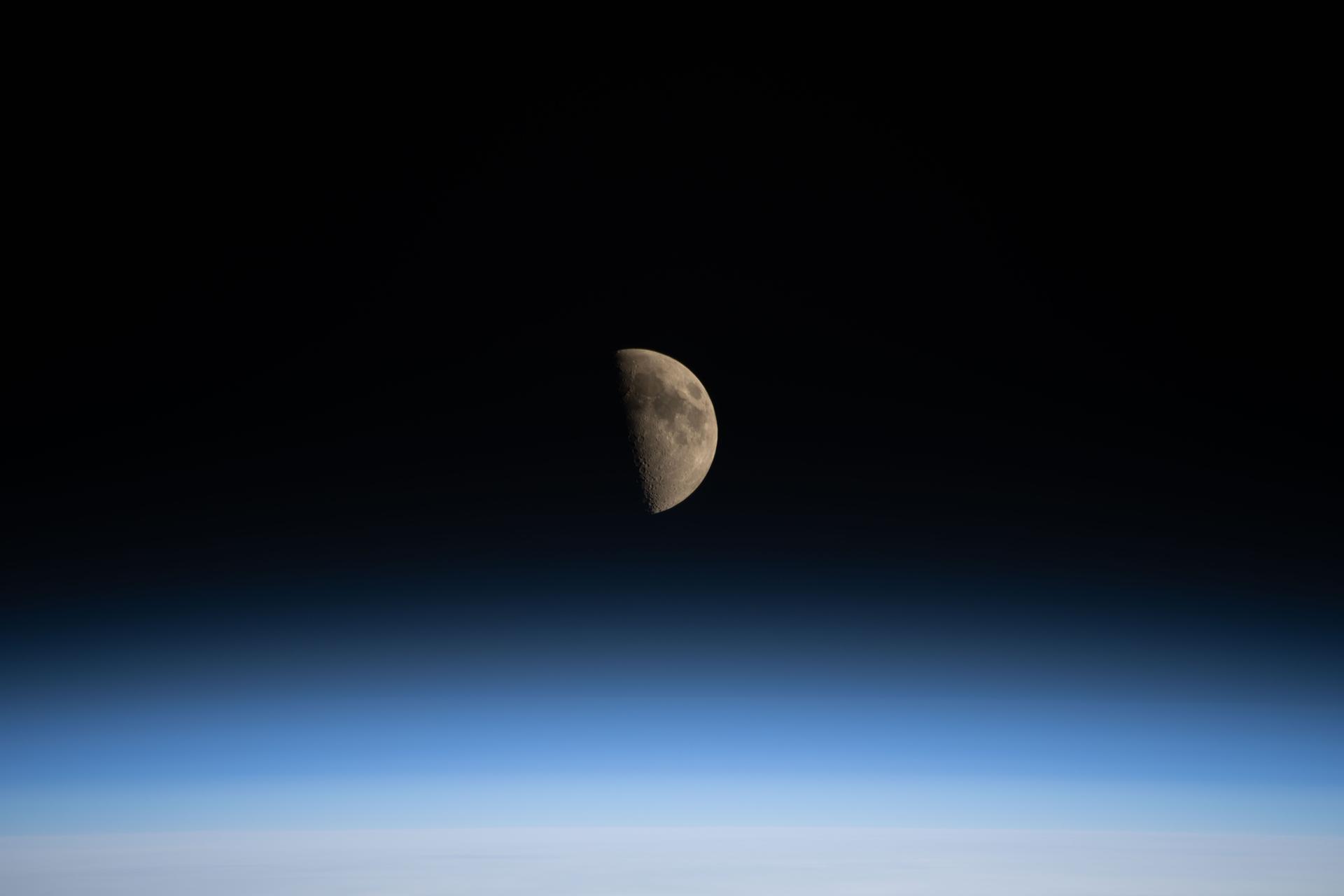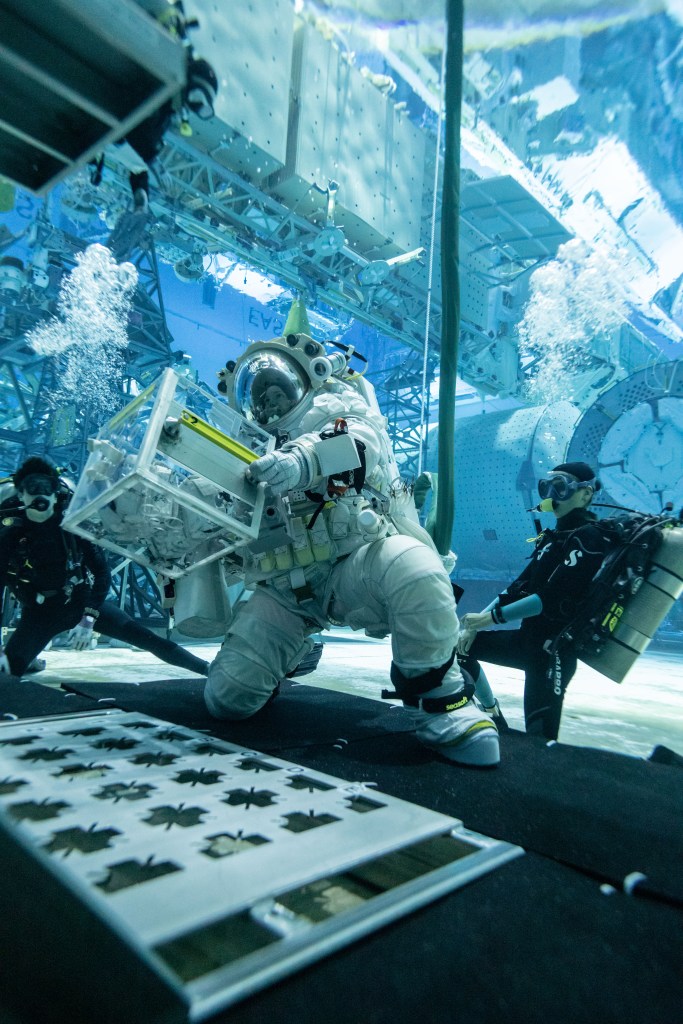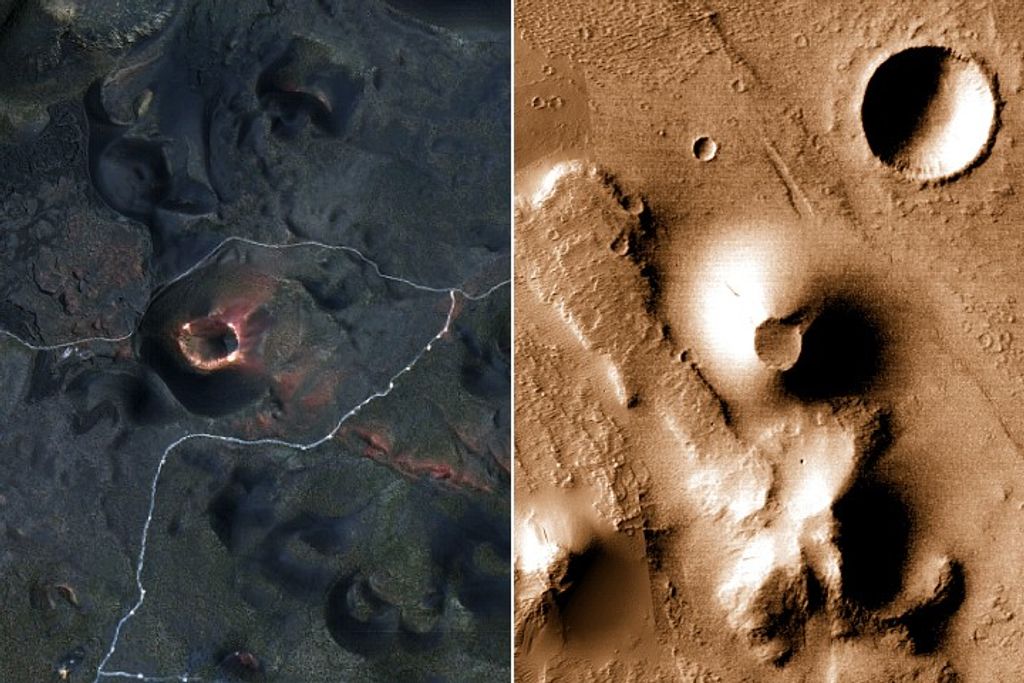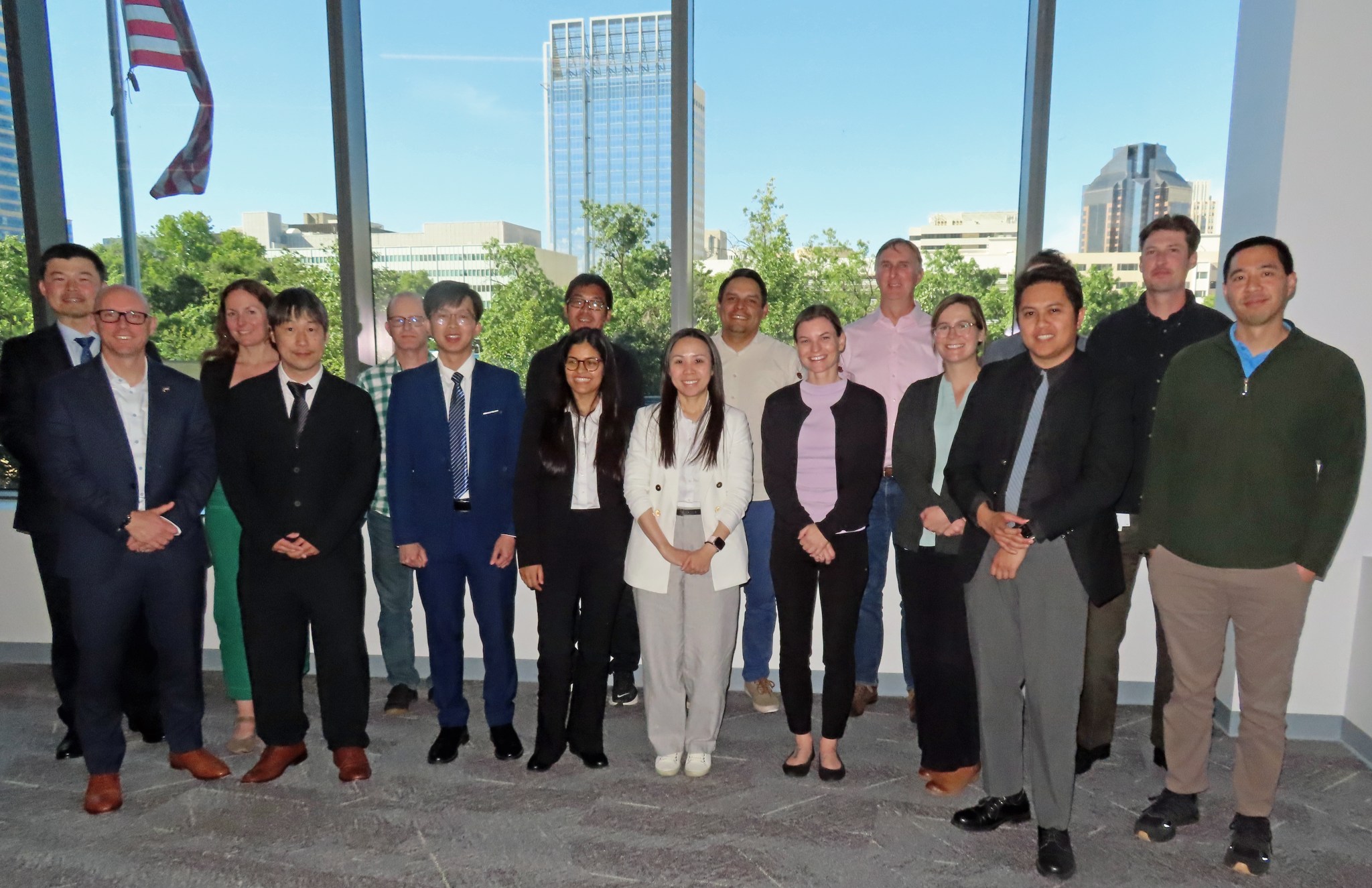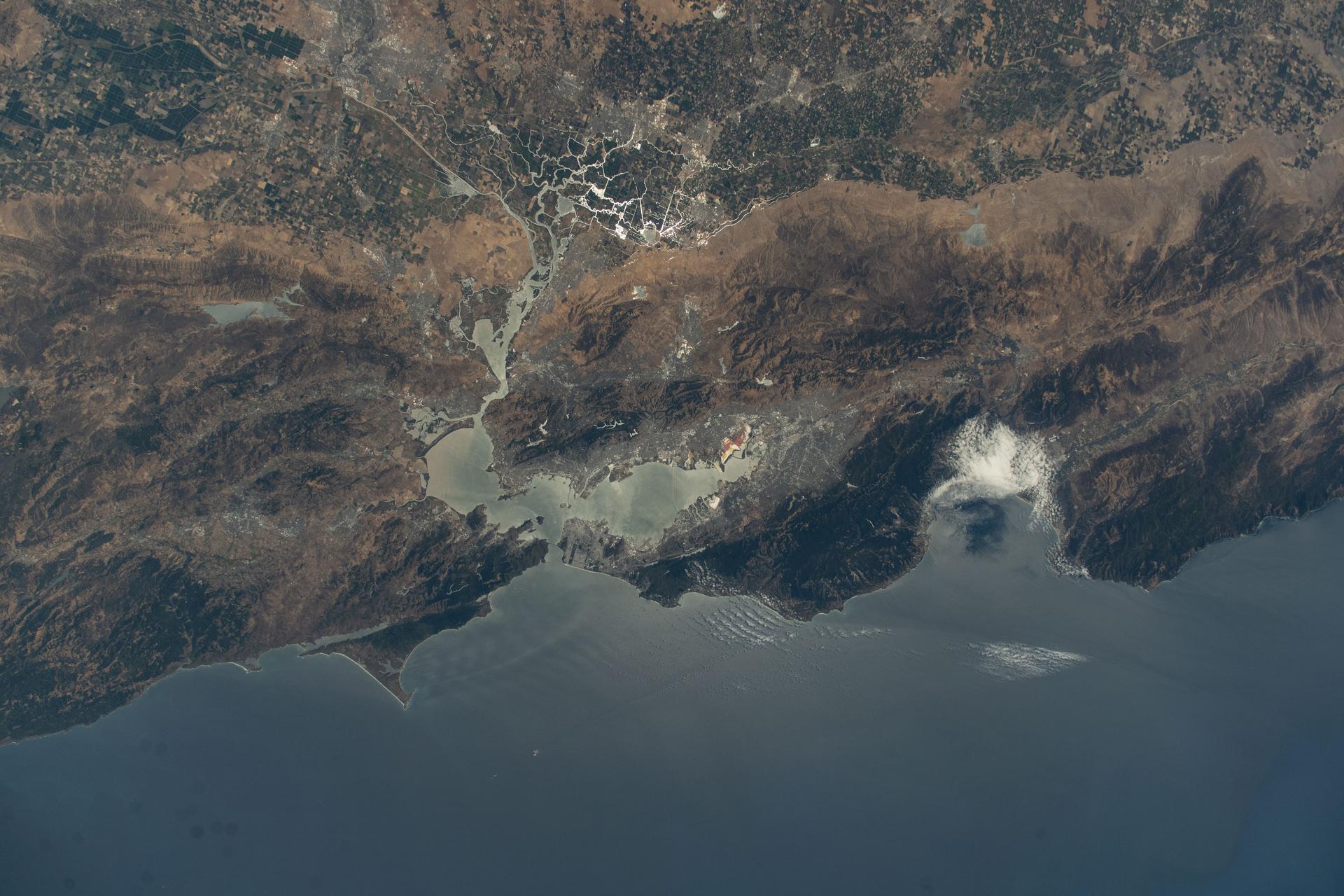
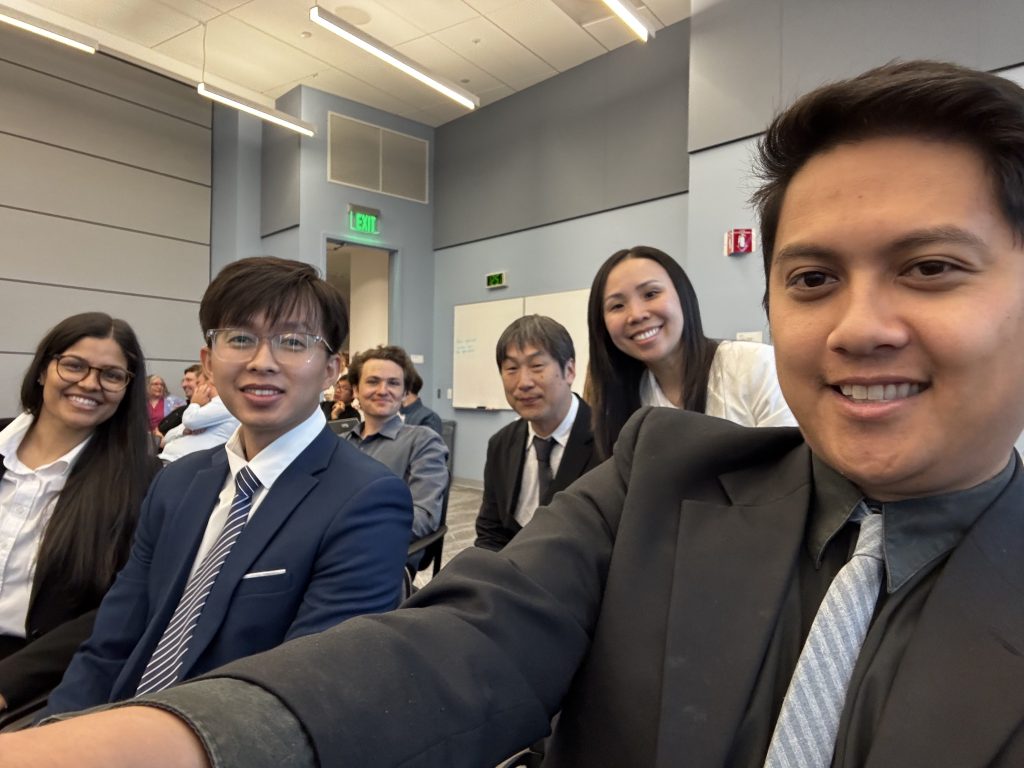
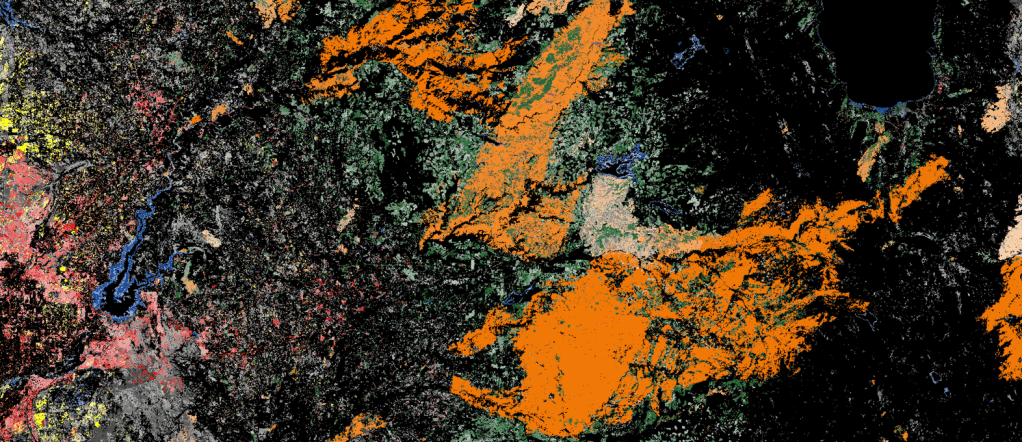
Meet the WERK Team
WERK is a collaborative effort between CARB, the CNRA, and NASA Ames’ NASA Earth Exchange (NEX) team. Together, these teams are making wildland fire management more efficient and effective in the state of California.
NASA Team

Taejin Park
Dr. Taejin Park is the WERK Project Scientist and oversees scientific integrity and implementation of the WERK project, as well as science communication and coordination with partners and the public. His research focus on creating actionable environmental and ecological information to make our society and ecosystem more just and sustainable. To achieve this goal, he integrates multi-platform remote sensing, in situ measurements, and process-based models to understand the processes impacting ecosystems. He has contributed to multiple NASA programs and missions, including the Global Ecosystem Dynamics Investigation (GEDI), Commercial Satellite Data Acquisition (CSDA), Advanced Information Systems Technology (AIST), and FireSense. He has also served as a Fire Danger Subcommittee member of the National Wildfire Coordinating Group and as a technical advisory member of the CalFIRE Fire and Resource Assessment Program (FRAP). He holds a Ph.D. in Earth & Environment with a focus on remote sensing and ecosystem science.

Scott Horner
Dr. Scott Horner is the WERK Project Manager. He is also a Spaceflight Project Manager in NASA Ames’s Engineering Division and holds a Ph.D in Astronomy and Astrophysics from the University of Chicago. Scott Horner is a Project Manager in the NASA Ames Spaceflight Projects Office. Dr. Horner has decades of experience in leadership roles on spaceflight projects including ESA’s XMM-Newton X-ray Telescope and the James Webb Space Telescope. As Lead Systems Engineer and Project Scientist on the NIRCam JWST instrument, he oversaw the development of requirements and interfaces, translated between the science customers and engineering team, as well as represented NIRCam to the JWST telescope team, the JWST wavefront sensing and control working group, and to the scientific community. He recently served on the architecture development teams for three of the Earth System Observatory teams, mass change, surface deformation and change, and surface biology and geology. For SBG he led the effort to develop a constellation pathfinder concept using a constellation of small satellites to achieve the science objectives of SBG. He currently serves on the Roman Space Telescope Wide Field Instrument Goddard Standing Review Team and the Roman Standing Review Board.

Wen Yip
Ms. Wen Yip is the WERK Deputy Project Manager at NASA Ames Research Center. She leads budget planning, execution, and monitoring, and facilitates quarterly planning reviews and updates. In addition, she supports the team’s operational needs by coordinating daily logistics, maintaining project schedules, and assisting with proposal budget planning. Wen holds a B.S. in Software Engineering and a Master of Public Administration from San José State University. Before joining the NEX team, she worked for a decade as a web developer, an experience she continues to draw on in occasionally managing and maintaining project websites.

Hirofumi Hashimoto
Dr. Hirofumi Hashimoto is a WERK Research Scientist at NASA Ames research Center and is responsible for developing Change Detection and Attribution Product using time series satellite observations. He has extensive experience in terrestrial remote sensing and ecosystem modeling, including topics such as land cover and land use change, biogeochemical and water cycling, and wildfires. He has participated in NASA satellite data processing projects, including those involving multiple geostationary satellite data (GeoNEX) and the Global Web-Enabled Landsat data (GWELD) processing. He has also contributed to regional-scale terrestrial ecosystem monitoring projects, such as ecosystem modeling in the Appalachian Mountains and downscaling of meteorological variables on the US West Coast. He received his M.S. and Ph.D. degrees in Agricultural Science from the University of Tokyo.

Khuong Tran
Dr. Khuong Tran is a WERK Research Scientist at NASA Ames Research Center and is responsible for developing high resolution Land Cover Classification and Mapping Product. His expertise lies in developing remote sensing algorithms and generating satellite-based products for large-scale terrestrial ecosystem monitoring. Dr. Tran has a robust background in surveying, mapping, remote sensing, and artificial intelligence (AI), which he has applied to numerous impactful projects funded by NASA, USDA, and USAID. His contributions have resulted in high-quality publications in top-tier peer-reviewed journals and advancements in NASA’s land surface phenology products. Through his work, Dr. Tran continues to advance the understanding of terrestrial ecosystems, leveraging cutting-edge geospatial technologies and AI to address pressing environmental and management challenges. He holds a Ph.D. in Geospatial Science and Engineering from South Dakota State University.

Pratima K.C.
Dr. Pratima KC is a WERK Research Scientist at NASA Ames Research Center, where she leads the development of the Individual Tree Monitoring Product using deep learning to advance high-precision forestry across California. Her expertise lies in applying remote sensing and advanced AI methods to conduct large-scale analyses of terrestrial ecosystems, with a particular focus on predicting the impacts of disturbances such as drought and wildfire. She has developed forest fire impact products and decision-support system that help land managers implement effective treatments and restoration strategies. She is deeply committed to translating cutting-edge remote sensing and AI research into data-driven insights that inform land management. Her research has been published in high-impact journals, and she is passionate about developing remote sensing and AI technologies to advance our understanding of Earth System. She holds a Ph.D. in Environmental and Forest Sciences from the University of Washington with focus on remote sensing and AI.

Akash Awasthi
Akash Awasthi is a WERK Research Scientist at NASA Ames Research Center, where he leads Built Structure Mapping product using high resolution remote sensing and computer vision models. His research focuses on developing large multimodal models and collaborative AI systems for scientific discovery at scale. He has previously held research positions at Argonne National Laboratory (U.S. Department of Energy) and IIT Kanpur, contributing to projects involving diffusion models for statistical downscaling. His research lies at the intersection of machine learning and scientific computing, with an emphasis on developing generalizable and interpretable AI models for complex data environments. His work has been published in top-tier scientific and AI venues in biomedical and health informatics, remote sensing, computer vision, and artificial Intelligence. He continues to bridge foundational AI research with real-world challenges in geospatial analysis, environmental monitoring, and interdisciplinary scientific computing.

Stephanie Pass
Stephanie Pass is a WERK Research Scientist at NASA Ames Research Center. Her research focuses on terrestrial ecosystem modeling, land cover changes, and estimating wildfire emissions in the wildland–urban interface. She has a strong interest in the connections between environmental change and public health. She applies large-scale data analysis, remote sensing, and geospatial modeling to improve estimates of biogeochemical fluxes, wildfire emissions, and post-fire ecosystem recovery. Her work includes developing and refining modeling pipelines, standardizing complex datasets, and performing spatial gap analyses to support large-scale environmental and ecosystem assessments. Her expertise will support the development of WERK’s analysis and assessment products to provide deeper insights into ecosystem dynamics and wildfire impacts. She holds an MPH in Epidemiology and Biostatistics with a Graduate Certificate in Applied Data Science from the University of California, Berkeley.

Bill Wohler
Bill Wohler is the WERK Software Systems Engineer at NASA Ames Research Center. He holds a B.S. in Computer Science and Mathematics from the University of California, Davis. He wrote Java software for the data analysis pipelines for the Kepler and Transiting Exoplanet Survey Satellite (TESS) missions and continues to support TESS today. He is on the development team for Ziggy, a portable, scalable infrastructure for science data processing pipelines, and is working to backport it to TESS. He also provides all of the systems engineering for Ziggy and presented his software management plan for Ziggy as an invited talk at the Software for the 2024 NASA Science Mission Directorate Workshop at headquarters to show how Jira could be leveraged to more easily meet NASA software requirements. He wrote Java software and performed software systems engineering for the science instruments on board the Stratospheric Observatory for Infrared Astronomy (SOFIA).

Ian Brosnan
Dr. Ian Brosnan is the principal investigator of the NASA Earth Exchange, a team that combines state-of-the-art supercomputing, Earth system modeling, and NASA remote sensing data to address challenges facing science and society. He also manages Ames Research Center’s contributions to the NASA Earth System Observatory, including development of a science data processing pipeline control infrastructure for spaceflight missions and the architecting of a small satellite constellation pathfinder for hyperspectral continuity measurements. He has previously worked in the Earth Science Technology Office’s Advanced Information Systems Technology program and in an interagency technical liaison role with the U.S. Geological Survey. His research has been published in a variety of technical and policy journals and has been anthologized in two books.
California Natural Resources Agency (CNRA)

Loretta Moreno
Moreno is an Environmental Program Manager leading the Timber Regulation and Forest Restoration Program at the California Natural Resources Agency (CNRA). She is a forest and wildfire resilience science and policy advisor to the Governor’s Administration at CNRA. She leads development of a statewide monitoring and evaluation system focused on tracking the effectiveness of the state's multi-billion-dollar wildfire and landscape resiliency investments and policies. Loretta manages and directs the WERK project as sponsor of the project in collaboration with other State agencies.
California Air Resources Board (CARB)

Tara Seely
Dr. Tara Seely is a nature-based strategies scientist at CARB. Her work focuses on quantifying trends in biomass stored in California’s natural and working lands. At CARB, Tara specializes in croplands and developed lands, where she uses remote sensing, field measurements, and robust scientific methods to model and assess drivers of change. A key component of her work involves effectively communicating results to agencies, stakeholders, and the public. Prior to her work at CARB, Tara researched the impact of invasive tree species on forest function in island systems using applications of terrestrial LiDAR. She also spent several years working in dry forest restoration on Hawaiʻi Island. Tara has a B.A in Earth and Planetary Sciences, an M.S. in Hydrologic Sciences, and a Ph.D. in Environmental Science, Policy, and Management.

Luke Salvato
Dr. Luke Salvato is an Environmental Data Scientist at the California Air Resources Board (CARB), where he applies remote sensing, machine learning, and spatial analysis to support California’s environmental and air quality goals. His work spans satellite-based detection of methane point sources, statewide PM2.5 estimation, and modeling biomass in grasslands, croplands, and soils. He holds a Ph.D. in Soils and Biogeochemistry and a Master’s in International Agricultural Development from UC Davis, and a B.A. in Earth and Oceanographic Science from Bowdoin College. Previously, he worked on farms and as a commercial lobster fisherman and built wooden lobster fishing boats. Luke is committed to producing policy-relevant science that drives solutions.

Kyle Lunneberg
Dr. Kyle Lunneberg is a scientist with CARB's Nature-Based Strategies Section, specializing in quantifying the effects of environmental change, lands management, wildfire, and sea level rise on California's Natural and Working Lands. His expertise in terrestrial gas exchange and ecology—especially within shrublands, wetlands, and sparsely vegetated ecosystems—informs programs that integrate remote sensing, modeling, and land management practices. His previous work includes studies of arctic permafrost thaw dynamics, management and study of chaparral ecosystems, and restoration projects in impacted wetlands of California. He has worked closely with members of the San Luis Rey Band of Luiseño and the Kumeyaay to continually learn how California’s lands have been managed for time immemorial. He holds a Bachelor’s degree (B.S.) in Biology and a Doctorate (Ph.D.) in Ecology with emphasis in bio-micrometeorology and wildfire ecology.

Chelsea Carey
Dr. Chelsea Carey serves as a Science & Policy Specialist at the California Air Resources Board (CARB) where she provides technical guidance, supports policy development, helps facilitate interagency collaboration, and contributes to outreach and communications for the agency’s nature-based strategies efforts. Prior to joining CARB, Dr. Carey was the Director of Soil Research and Conservation at Point Blue Conservation Science, a California-based non-profit focused on conservation. She holds her doctorate in soil ecology and biogeochemistry from the University of California Merced and has published dozens of peer-reviewed articles and reports on soil stewardship, environmental harm mitigation, ecological monitoring, and microbial dynamics, with a particular emphasis on California’s rangelands.

Zhongwu Wang
Dr. Zhongwu Wang is a landscape remote sensing scientist at the California Air Resources Board (CARB), where he contributes to map and monitor biomass across California’s landscapes using advanced remote sensing, machine learning, and geospatial modeling techniques. His work supports the state’s Natural and Working Lands Inventory by developing innovative tools to estimate soil and biomass dynamics and evaluate nature-based solutions. Dr. Wang brings over a decade of experience in environmental data science, including previous leadership as CTO at Land IQ, where he built scalable systems for crop mapping and evapotranspiration modeling. He holds a Ph.D. in Geography with a focus on remote sensing and ecosystem modeling.

Alex Yiu
Alex Yiu is a nature-based strategies specialist at the California Air Resources Board. He focuses on CARB’s incentive programs to promote management strategies that contribute towards ecological resilience goals. This work includes exploring new opportunities for incentives and assessing current program needs, effectiveness, and areas for improvement. He also provides technical and policy support on regulations and programs that intersect with nature-based strategies, primarily in relation to forest management. Prior to CARB, he was forester with the U.S. Forest Service and implemented landscape-scale vegetation treatment projects across Northern California. He has a B.S. in forestry from UC Berkeley and is a California Registered Professional Forester.

Ryan Bart
Dr. Ryan Bart is a Natural & Working Lands Scientist in the Nature-Based Strategies Section at the California Air Resources Board (CARB). His work seeks to understand the connections between water, vegetation and disturbances under different environmental regimes and management practices in support of California’s environmental goals. Ryan employs a mix of mechanistic and statistical models, remote sensing, and geospatial data. He is also an active developer for RHESSys, a process-based ecohydrologic model designed to simulate hydrology, biomass, and fire processes. Ryan has a Ph.D. and M.S. in Geography and a B.S. in Genetics. Before joining CARB, Ryan worked as an ecohydrologic scientist at UC Berkeley, UC Santa Barbara and UC Merced.

Leland Tarnay
Dr. Leland Tarnay is an Air Pollution Specialist at the California Air Resources Board (CARB). He has many years of experience using his expertise in land-atmosphere interactions to integrate smoke, biomass, and fuels management with fire management, especially as they affect public health and air quality. He has worked as a physical scientist and ecologist for both the National Park Service and USDA Forest Service in this capacity, as well as serving operationally as a smoke forecaster (Air Resource Advisor) on some of California’s largest fires. Dr. Tarnay earned his Ph.D. in Environmental Sciences in 2001 from the University of Nevada, Reno and a Bachelor of Science in 1995 from the University of California, Davis.

Matthias Falk
Dr. Matthias Falk is the lead scientist for CARB’s Nature-Based Strategies Section, focusing on the science behind the Natural Working Lands Inventory and Scoping Plan. He coordinates these projects with a team of ecologists, remote sensing scientists, and modelers to identify the role of California’s natural and working lands in achieving environmental goals. Dr. Falk holds a Ph.D. in Atmospheric Science (Micrometeorology) from the University of California, Davis, and a Master's degree in Physics (Bioclimatology) from Georg-August-Universität in Göttingen, Germany. Throughout his career, he has integrated remote sensing products with tower observations and micrometeorological models. Dr. Falk previously served as a project scientist for the global FLUXNET project at UC Berkeley.

Kelsey Brewer
Dr. Kelsey Brewer is the Circular Bioeconomy Scientist at the California Air Resources Board (CARB), where he leads technical efforts to quantify and monitor the role of California’s harvested biomass sector in achieving environmental goals. He supports CARB’s circular bioeconomy initiatives related to biomass harvesting and utilization, wood products, organics recycling, soil amendments, bioenergy and biofuels. Dr. Brewer also provides technical and policy expertise on other nature-based strategies including biogeochemistry, soil and cropland management, and grassland and grazing systems. Prior to joining CARB, he served as an agricultural extension agent and program director with the Marin Resource Conservation District and as a research agroecologist at UC Davis. He also brings 16 years of hands-on experience as a small-scale, organic, and urban farmer in California’s Sacramento Valley. Dr. Brewer holds a B.S. in Plant Science and a Ph.D. in Soils and Biogeochemistry, both from UC Davis.

Jim Falter
Dr. Jim Falter works within the Nature-Based Strategies Section of the Industrial Science Division at the California Air Resource Board [CARB]. He is currently leading efforts to gather and analyze data on management activities across all of California’s natural and working landscapes to help evaluate the state’s progress toward achieving natural disaster mitigation and resilience goals set forth by CARB and the State Legislature. He is also helping CARB evaluate emerging technologies aimed at marine environments. In his prior life, he studied the effects of coastal physics and geochemistry on nutrient cycling, production, and calcification in coral reef communities from across the Indo-Pacific and Caribbean. He holds a BS in civil and environmental engineering, an MS and PhD in oceanography and marine geochemistry, and an MA in statistics.

Adam Moreno
Dr. Adam Moreno is the California Air Resources Board’s (CARB) Chief of Carbon Management. He leads CARB’s team of ecologists, remote sensing scientists, and modelers identifying the role that California’s natural and working lands play in the state’s efforts to enhance resilience and mitigate natural disasters. This work includes setting targets, tracking progress towards these targets, assessing the effectiveness of policies, programs, and management strategies, and using this information to inform policy development. He also provides technical and policy support throughout California on the topics of ecology, land management, and wildfire. He was previously an earth scientist at NASA Ames Research Center and has also been a Peace Corps volunteer in Paraguay, South America, and a wildland firefighter as a hotshot with the U.S. Forest Service. He holds a bachelors in computer engineering, a masters in ecological modeling, and a doctorate in remote sensing and forest ecology.

